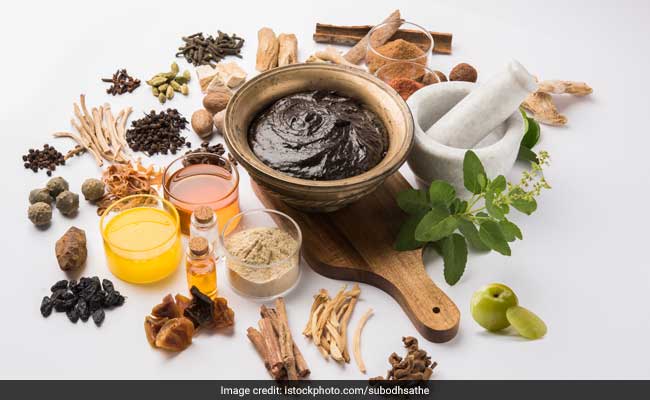
My relationshipUnderstanding Sugar: An Ayurvedic Perspective for Balanced Living
Sugar can be a tricky topic in today’s world of health trends. We often find ourselves caught between cravings, guilt, and the ever-changing nutrition advice surrounding sugar. From avoiding it entirely to bargaining with ourselves for “just a little bit,” it can feel overwhelming. With so many conflicting opinions, how can we figure out the right amount of sugar for our bodies? The answer lies not in restrictive diets but in a more holistic approach—an approach rooted in Ayurveda and the yogic diet.
The Ayurvedic Approach to Sugar: A Holistic Perspective

In Ayurveda, Sweetness (the Rasa or taste) is considered one of the most important and beneficial flavors of the six tastes (sweet, sour, salty, bitter, pungent, and astringent). Ayurveda encourages the consumption of the Sweet taste in moderate amounts because it nourishes and supports the body and mind. But it’s important to understand that in Ayurveda, “Sweet” doesn’t just refer to refined table sugar—it encompasses a wide range of naturally sweet foods such as:
- Milk
- Ghee (clarified butter)
- Rice
- Whole grains
- Legumes
- Sweet fruits (e.g., bananas, mangoes, apples)
- Dates
- Honey
- Jaggery
Ayurveda looks at food through a lens that encompasses biochemical, bioenergetic, and even spiritual aspects. The Sweet taste is thought to have a positive impact on our overall well-being—both physical and emotional. In moderation, it satisfies hunger, quells thirst, nourishes the tissues, boosts immunity, and promotes mental and emotional balance.
Positive Effects of the Sweet Taste:
- Nourishes and satisfies: Sweet foods are satisfying and provide essential nutrients.
- Enhances positive emotions: When consumed in the right amounts, the Sweet taste is linked to happiness, contentment, and emotional calmness.
- Supports immunity: Naturally sweet foods like honey and ghee provide the body with building blocks that enhance immunity and energy.
But the key, as with anything in Ayurveda, is balance. Overconsumption or an over-reliance on sweet foods can disturb the mind-body balance, leading to issues like inflammation, obesity, or digestive problems.
How Much Sugar is Right for You?

The Ayurvedic approach encourages a moderate, balanced approach to sugar—one that integrates natural sweeteners while avoiding highly processed, refined sugars. If you’re following an Ayurvedic or Sattvic diet, you’ll naturally avoid sugar-laden foods like:
- Sodas
- Candies
- Packaged cereals
- Sugary snacks
Instead, focus on whole, nourishing meals made from whole grains, vegetables, legumes, spices, and healthy fats, which are naturally low in fructose and have a low glycemic impact. When a sweet craving hits, Ayurveda encourages turning to natural, unprocessed sweeteners like:
- Honey: A versatile sweetener with various health benefits (more on this below).
- Jaggery: A less-processed, nutrient-dense sugar alternative.
- Maple syrup: Another natural sweetener that’s rich in antioxidants.
Additionally, incorporating a pinch of cinnamon with sweet dishes is a great Ayurvedic practice—it helps regulate blood sugar levels and balances the sweet taste without overwhelming the body.
When Sweet Cravings Strike:

Rather than reaching for processed snacks or sugary foods, Ayurveda suggests satisfying your cravings with nutrient-dense, natural sweeteners in their most unrefined forms. Homemade cookies with whole grains and ghee, for example, not only satisfy your sweet tooth but also nourish your body.
Ayurveda vs. Western Views on Sugar

The primary distinction between Ayurveda and Western nutrition lies in the way different types of sugars are viewed and their impact on the body and mind. Ayurveda takes into account the unique effects of various sweeteners and emphasizes the energy qualities of food.
Here’s how different sweeteners are viewed from an Ayurvedic standpoint:
- Honey: A sweet and heating substance, honey is seen as beneficial for Vata and Kapha doshas, helping to “scrape fat” from the body, while it can increase Pitta (which is heating in nature).
- Jaggery: A naturally sweet and cooling sugar that strengthens and nourishes. It’s ideal for Vata dosha but can increase Pitta and Kapha in excess.
- White sugar: Though it’s sweet, white sugar is highly refined, heating, and stimulating. It’s believed to aggravate all three doshas (Vata, Pitta, and Kapha), causing imbalance in the body and mind, particularly leading to restlessness, anxiety, and fatigue.
From an Ayurvedic perspective, less-processed sugars such as jaggery, maple syrup, and honey are considered Sattvic, promoting mental clarity, peace, and balance. In contrast, refined sugars and artificial sweeteners are Rajasic (stimulating) and Tamasic (dulling), leading to mental fog, cravings, and depression.
The Ayurvedic Approach: Moderation Over Elimination

While sugar elimination diets are popular in Western nutrition, Ayurveda offers a more balanced approach. Rather than cutting sugar out entirely, Ayurveda promotes moderation and mindful restraint. The key to maintaining balance lies in the quality of the sugar consumed and the quantity.
Ayurveda emphasizes that food should be enjoyed with awareness, and sweetness should be appreciated in its most natural forms—foods like fruits, ghee, and honey rather than processed sugars.
When elimination of sugar is necessary—whether for medical reasons or personal choice—Ayurveda recommends a gentle approach rather than extreme restriction. This allows the body to naturally adjust and detoxify, without the negative side effects of a drastic sugar-free diet.
Frequently Asked Questions (FAQs)
1. Can I consume refined sugar in Ayurveda?
- Ayurveda discourages the consumption of refined sugars as they are stimulating, heating, and disruptive to the doshas. Instead, opt for more natural alternatives like honey, maple syrup, or jaggery.
2. Should I eliminate sugar entirely from my diet?
- According to Ayurveda, elimination of sugar isn’t necessary unless medically required. Instead, focus on moderation and choose natural, unprocessed sweeteners for a balanced, mindful approach to sweetness.
3. Is honey healthy in Ayurveda?
- Yes, honey is considered a Sattvic food when consumed in moderation. It is sweet and heating, making it beneficial for Vata and Kapha doshas, but it should be consumed in moderate amounts to avoid aggravating Pitta.
4. How can I manage sweet cravings without feeling guilty?
- Ayurveda encourages indulging in natural sweet foods like fruits, honey, and ghee in moderation. When cravings hit, use these natural sources to satisfy your sweet tooth without overindulging in processed sugars.
5. How do I balance sugar in my diet while practicing yoga?
- A Sattvic diet, which includes whole grains, vegetables, and natural sweeteners, will support both your body and mind. The balance lies in moderation—enjoy sweet foods like dates, honey, or fruits without overconsumption, and your practice will naturally feel more grounded.
Conclusion: A Balanced Approach to Sugar in Your Diet
Understanding sugar through the lens of Ayurveda offers a refreshing and balanced way to manage your cravings and relationship with sweets. By prioritizing natural sweeteners, whole foods, and a moderate approach, you can support both your physical health and mental clarity. Ayurveda encourages embracing the Sweet taste for its ability to nourish and calm, but with awareness and moderation.
Rather than stressing about completely eliminating sugar from your diet, Ayurveda invites you to enjoy sweets as part of a harmonious lifestyle—enabling you to live in balance, both on and off the mat. Embrace natural sweetness, honor your cravings mindfully, and cultivate a peaceful, nourishing relationship with food.Tools
